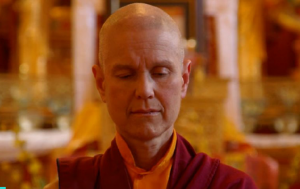
Students love stories about meditation. Here’s one that suggests that the practice may actually slow down aging.
That’s exactly what science writer, Jo Marchant, writes about in an essay for Informed Comment called “Can Meditation Slow Ageing? One Nobelist thinks So.”
Elissa Epel, now director of the Aging, Metabolism and Emotion Center at UCSF, and Elizabeth Blackburn, a 2009 Nobel Prize winner in the Physiology of Medicine, discovered that a part of human chromosomes that relate to aging degrades over time. That part, called telomeres, can predict future health, according to studies by Eppel and Blackburn.
Marchat notes that one study “showed that elderly men whose telomeres shortened over two-and-a-half years were three times as likely to die from cardiovascular disease in the subsequent nine years as those whose telomeres stayed the same length or got longer.”
Meditation can slow the degradation of the telomerces, according to small studies.
Blackburn says that “so far the studies are small, but they all tentatively point in the same direction. In one ambitious project, Blackburn and her colleagues sent participants to meditate at the Shambhala mountain retreat in northern Colorado. Those who completed a three-month course had 30 per cent higher levels of telomerase than a similar group on a waiting list.”












